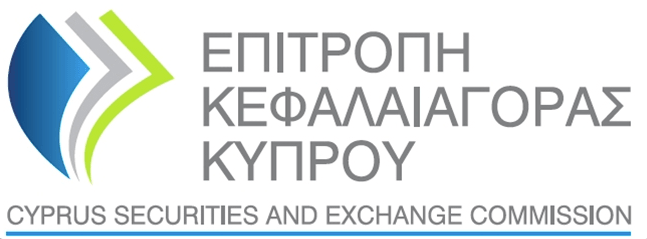Online Brokers In Europe 2025 – Comparison & Reviews
In recent years, the financial markets have gained popularity with European retail investors, calling for more online brokers. Yet the growing list of trading brokers can make finding the right account and platform challenging. This tutorial explains the key features to compare so you can sign up with the best online brokers in Europe.
Understand Your Needs
Before selecting an online broker, you should consider what kind of trader you are and your investment goals. For example, a beginner may require a broker with more educational resources. Likewise, someone setting up a retirement fund may want to choose a provider that offers real estate investment trusts (REITs), providing a steady income through dividends.
Useful questions to ask yourself are:
- Do I want to be a passive or active investor?
- Am I seeking short term returns or long term income?
- Do I have enough time for day trading?
- What assets and markets interest me?
- Do I have experience in trading?

Comparing Online Brokers in Europe
The top online brokers in Europe have a good reputation because they are regulated, offer high-quality order executions, and facilitate secure trading across a range of markets. Leading brands also provide access to user-friendly trading tools and real-time market insights. In addition, the best brokerages typically have a large international customer base and have been operating for at least two years.
With this in mind, the key features you should use to compare online brokers in Europe are:
Regulations
How and where a brokerage is regulated offers insights into the security and safety of your investments and data. Fortunately, most online brokers in Europe are regulated by external authorities that help protect retail traders. In contrast, unregulated stock and forex brokers may offer less protection with insufficient customer and platform support which could lead to financial harm.
To check that a broker is regulated, investors can validate licenses on the respective financial authority’s database. Also look for any past bankruptcy, disciplinary actions, licensing problems, or consistently poor customer reviews. This helps to rule out any regulated but non-compliant brokers.
The best online brokers in Europe are overseen by top-tier financial authorities and regulations:
- European Securities and Markets Authority (ESMA) – An independent regulatory organisation that supervises brokers, manages risk, and provides a rule book for EU financial markets. This ensures efficient and stable financial markets, data transparency, and client safeguarding.
- The Markets in Financial Instruments Directive (MiFID) – A European regulation that sets basic standards for European brokers to follow, varying between countries. This includes mandatory risk transparency, segregation of client funds, and investor compensation orders.
- The Cyprus Securities and Exchange Commission (CySEC) – An external financial body that is the largest global regulator of forex, stock, commodity and options brokers. It encourages secure investing while allowing leveraged trading with retail rates up to 1:30.
- The Financial Conduct Authority (FCA) – An authority for British traders (outside EU) which is mandatory for online brokers selling services to UK retail investors. In recent years, the FCA has cracked down on retail crypto trading, in particular.

Fees
It is important to understand a broker’s fee structure before you use their platform and invest capital. To compete in the crowded marketplace, most online brokers in Europe advertise low fees but may have additional charges once you open an account. These can include:
- Commissions – a flat fee for every transaction, these vary between firms and will increase with activity
- Spreads – the difference between the bid and ask price where platforms often apply a mark-up to generate a profit. ECN brokers tend to offer the tightest spreads though this could result in a higher commission charge
- Management fees – if you use the broker’s representatives to manage your account and execute positions they may charge a fee based on a percentage of the total assets in your account
- Conversion fees – a charge for currency conversion if dealing in a different currency, for example, USD or GBP. Check what base currencies are offered by a broker to avoid this. Most investors in Europe will want a EUR trading account
- Account transfer fees – a charge for moving your capital and assets to another account solution
- Deposit and withdrawal fees – a charge for any capital deposited or withdrawn
- Inactivity fees – typically a monthly charge when accounts are left dormant
- Brokerage fees – an annual charge for account maintenance
The top online brokers in Europe are transparent with their fees. eToro and AvaTrade, for example, both offer tight spreads without hidden charges. In addition, for trading US Stocks, DEGIRO charges €0.50 per trade (which is a €0.00 commission plus €0.50 third-party fee) while Interactive Brokers charges $0.005 per share with a $1 minimum and a maximum of 1% of the trade value.
Minimum Deposit
The minimum deposit is another financial point to consider when choosing a broker. This is the minimum amount of money needed to open an account. Minimum deposits vary among online brokers in Europe but many offer very low account minimums. For example, XTB requires no minimum deposit while Trading 212 requires a minimum deposit of 1 GBP/USD/EUR.
With that said, do not choose a broker only because they are cheap when starting out. The trading tools and resources that make some online brokers more expensive at the beginning can prove useful, especially for new traders. Pepperstone, for example, requires an initial deposit of €200 but is one of the best online brokers in Europe for educational tools – so you’re getting more for your money.
Products & Assets
If you are set on a particular asset or market, for example, major forex pairs, European stocks or precious metals like gold, check your broker provides suitable access. While many brokers are known for market specialities, the best brokers in Europe will provide a broad range of assets to meet varying client requirements. CMC Markets, for example, offers everything from stocks and share baskets to ETFs, rates, bonds, commodities, indices and cryptocurrencies.
Some of the most popular trading assets include:
- European Stocks – Collectively, European stock exchanges amount to 19.5% of the global stock market, with the London Stock Exchange and Euronext in the top 10 global stock markets. Some of the best online brokers in Europe for trading stocks are XTB and DEGIRO.
- Forex – The London trading session accounts for almost 35% of the global total average forex turnover. The top online brokers in Europe for trading FX include Pepperstone and IC Markets.
- Indices – Established indices in Europe include the Euro Stoxx, the FTSE 100, and the DAX 40. The leading online platforms offer spot trading or derivatives like CFDs and ETFs. Some of the best brands for trading indices are AvaTrade and IG.
- Cryptocurrency – Crypto assets in the EU are legal QFIs (qualified financial instruments) meaning exchanges holding a QFI license in Europe can trade cryptocurrency. Among the top providers are eToro and Coinbase.
Customer Service
Reputable brokers offer reliable customer support. The best firms offer highly-responsive multilingual 24/7 support via telephone, email, or live chat where their representatives can clearly explain and resolve queries. Online brokers in Europe that consistently receive poor customer experience reviews should be removed from your list of options.
If you want to avoid an automated chatbot make sure your broker offers telephone or video support with real customer service representatives like Videforex. An increasing number of brands also respond to customer queries via social media channels like Instagram, Facebook and Telegram.
Platforms
Most online brokers in Europe provide user-friendly platforms with simple interfaces that are easy to navigate. MetaTrader 4, MetaTrader 5 and cTrader are among the most popular options. These terminals offer interactive charting, dozens of technical indicators, built-in news feeds, instant and pending order types, plus automated trading capabilities.
The best trading platforms in Europe also support mobile web browsers and apps that allow for trading on the go. This is important as positions are often time-sensitive. So if you know you won’t have time to sit at your laptop all day choose a brokerage that offers mobile platforms compatible with iOS and Android devices. Pepperstone and CMC Markets both offer good mobile apps as well as browser-based desktop platforms.

Educational Tools
The educational resources offered by an online broker are important, especially for beginners. Many of the top European brokers provide a variety of training services which simplify the trading process and help investors expand their knowledge. These can include weekly newsletters, market research reports, blog posts, tutorial videos, webinars, and more.
Eightcap and DEGIRO, for example, offer educational tools and academies that provide a comprehensive breakdown of products, trading strategies, and market insights, with the latter also offering a short documentary series on investing basics.
Security
A broker’s security protocols are key to protecting your payments, personal data, and privacy. A more established broker with years of service and expertise is a good indicator of safety. Likewise, online brokers in Europe that are regulated by top-tier organisations tend to have higher levels of protection, including segregated client accounts, investor compensation schemes, data encryption, plus two-factor authentication at the login stage.
Bottom Line on Online Brokers in Europe
In general, European trading brokers are trustworthy with secure investing platforms. But with the growing list of options and brands, use our tips above to find the right platform for your needs. We also recommend opening an account with a brokerage based in Europe, as these tend to provide top-rated investing solutions while complying with rules and regulations set out by the CySEC and ESMA.
FAQ
What Are The Largest Stock Exchanges In Europe?
Euronext, Deutsche Boerse, London Stock Exchange and the SIX Swiss Exchange are among the largest stock markets in Europe. The largest exchange, Euronext, lists more than 1,890 companies for a combined market capitalisation of €5.6 trillion. Among the top brokers that offer trading opportunities on the Euronext and European stock markets is AvaTrade.
Do Online Brokers In Europe Offer Demo Accounts?
The best online brokers in Europe offer free demo accounts, otherwise known as paper trading. These trial accounts allow investors to navigate the broker’s platform and practise strategies in a simulated trading environment. They are a great way to try before you buy.
How Much Money Do I Need To Open A Brokerage Account In Europe?
European traders can get started with as little as a €1 initial payment. However, some brokers use a low minimum deposit requirement to entice new investors while not necessarily offering the best trading conditions or competitive fees. With that in mind, consider more than just the initial deposit.
How Do I Know My Money Is Safe With Online Brokers In Europe?
The best online brokers in Europe are regulated by financial authorities who ensure that brokers comply with various security measures designed to protect retail investors, for example, capping leverage to 1:30 and providing negative balance protection. With that said, there is always a risk when online trading, be it from financial losses or account hacks. The main European authorities include the Cyprus Securities and Exchange Commission (CySEC) and the European Securities and Markets Authority (ESMA).
What Assets Can I Trade With Online Brokers In Europe?
The most popular markets include forex, commodities, stocks, futures and cryptocurrencies. The best online brokers in Europe also offer ETFs, REITs, mutual funds, options and bonds.
